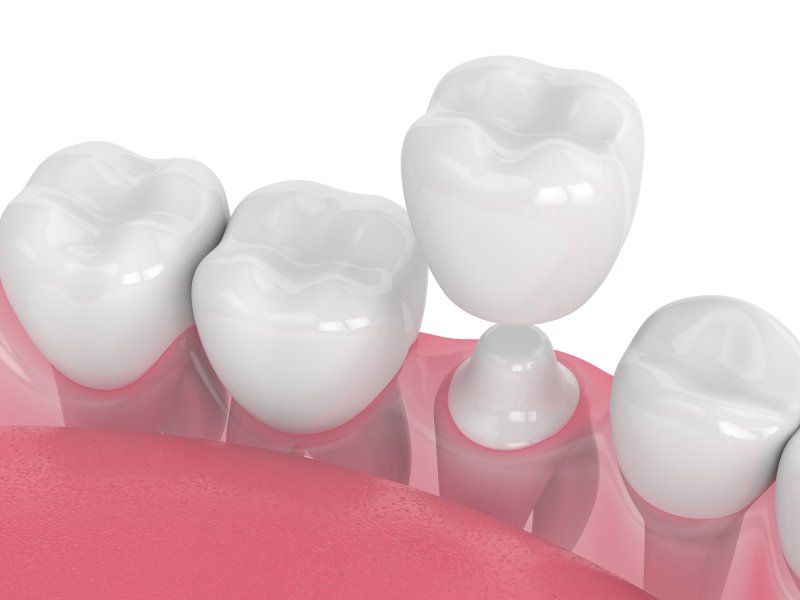
Do you have a decayed or damaged tooth that needs to be repaired? Has your dentist recommended you get a dental crown? This protective “cap” is designed to fit atop a weakened tooth to improve its appearance and strengthen its structure. While you can expect to benefit greatly from this restoration, you might wonder if there’s any discomfort throughout the process. Keep reading to learn what you should expect from your appointment and the advantages you can enjoy after getting your dental crown.
Does it Hurt When Getting a Dental Crown?
The very first thing your dentist will do before starting your dental crown treatment process is numb your mouth with a local anesthetic. This means you shouldn’t feel any discomfort during your appointment. They may even provide you with sedation dentistry to further reduce your ability to register pain as well as keep you calmer throughout your visit. The anesthetic should wear off gradually, so you likely won’t feel much of the area for a few hours.
Though you should experience a stress-free procedure, it’s normal to feel some sensitivity and tenderness around your tooth for a couple of weeks. This is because your nerves will need to get accustomed to the anatomical changes. This can easily be managed with over-the-counter pain relievers. Your restoration is meant to protect the compromised tooth, so it should help alleviate discomfort and sensitivity in the long run.
The Essential Benefits of Dental Crowns
By restoring your damaged tooth with a dental crown, you should expect to appreciate several benefits from the treatment, including:
- Pain relief – A tooth that’s been decayed or injured is more likely to experience discomfort whenever exposed to hot/cold temperatures and excessive pressure. Your dental cap will cover and keep it safe from these sensations, minimizing any pain in the area.
- Swift treatment process – It should only take a few weeks to complete your dental crown procedure, as you’ll need to wait to receive your final restoration. Afterward, you should enjoy your results for 10+ years if you practice proper care.
- Improved appearance – Other than protecting your underlying tooth, a crown can also be designed to correct other dental flaws, such as stains and irregular shapes.
Now that you know what to expect from your treatment, you shouldn’t have any worries going into your appointment. Thanks to modern dental technology, you’ll be able to undergo a painless process for long-lasting tooth repair!
About the Author
Dr. Christel Cochell attained her dental doctorate from the Oregon Health & Science University in Portland. She regularly seeks continuing education and is a member of several organizations like the Seattle Study Club and the American Dental Association. She provides a long list of comprehensive and pain-free treatments, including dental crowns. If you’d like to schedule your initial consultation, visit her website or call 503-585-8688.
